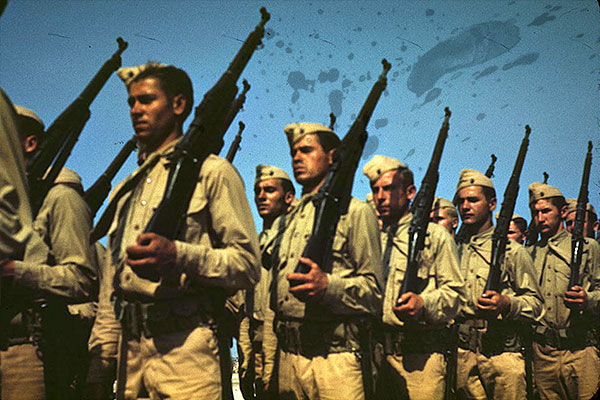Notes on a Scandal | Issue 18
Star spangled suicide
The closest I ever got to this was a Les Mills Boot Camp, where I was made to tuck my indefinite layers of polypropylene into my tights, which resulted in an unfortunate ‘gunt’. This coupled with the chest-squishing effect of a sports bra served to desexualise me entirely, shattering any dreams of ever becoming Angelina Jolie’s stunt double.
As it turns out, the woes of American military service extend far beyond the fact it’s difficult to look good in a tee-shirt emblazoned with your surname (exponentially more the case when your surname is ‘Mann’.) In fact, people going to war for the star spangled banner have ended up losing their lives.
But I’m not referring to the more than 6,365 U.S. military ‘casualties’ so far of the wars in Afghanistan and Iraq, or the estimated 22-33% of female soldiers who are sexually assaulted by their colleagues. I’m not even talking about the 68,000 American veterans who are homeless (an experience most Kiwis would find difficult to comprehend. Unless you live in Christchurch).
What I am talking about is the fact that this year, for every soldier killed in Afghanistan or Iraq, twenty-five have killed themselves. Young people are lured into the military to fight for life, liberty and the pursuit of happiness, only to return and be imprisoned by their own suffering.
The main reason for these suicides seems to be post-traumatic stress disorder- thought to affect one in five soldiers- traumatic brain injury, combat stress or some combination thereof, that goes inadequately treated. High rates of veteran unemployment compound the problem, which is often self-treated with alcohol or drugs.
Despite the fact that Obama has increased the access to, and range of support services available to veterans, and there have even been promising studies done using Ecstasy for the treatment of PTSD, the tragedy persists. Arguably, the real issue is the culture of silence that pervades the military, which traditionally views those showing emotional stress as weak.
What this epidemic needs most is not a halfway house or a drug, but rather a culture shift that makes it okay to not be okay. Given the fact that New Zealand, too, is experiencing a suicide epidemic, this is advice that we ourselves might do well to heed.







